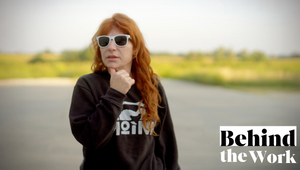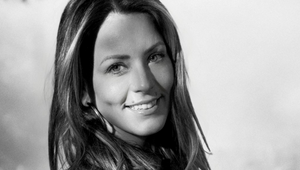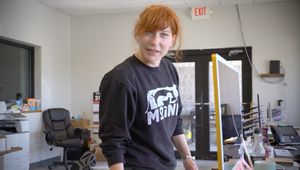
Director’s Playbook: 11 Winning Pitch Tactics Revealed

For some, pitching is an art. For others, a mathematical equation. For most – scary as hell and a total headache. Here to demystify the process is long time director Jordan Brady. He’s been pitching on commercials for over 25 years now, and has the business, awards and salt and pepper hair to prove it. “When I started, agencies didn’t need treatments, and the job was awarded based on your reel, plus your take on the material,” Jordan tells us. “Nowadays, pitching is the actual job. Directing the commercial is the reward.”
Here, we find out his secrets for making sure you land the pitch, why it’s important to have some foreplay before getting busy, and why you should always be grateful you were asked to dance.
Below are 11 tips that Jordan claims help him “win more jobs” than he loses.
1. Have a valid reason for wanting the gig
Look at each opportunity through the lens of ‘the three R’s’: Do I want this spot for my 1) Reel, 2) Relationships or 3) Revenue?
Any smart filmmaker always wants a great script to keep the reel fresh. You should also ask yourself ‘Have I worked with the creatives before?’. I always love helping a relationship or making a new one. But I’ve never won a job when the revenue was the key motivator.
2. Personal pre-vis
I like to print the script to scribble notes on it, draw stick people and visualise the spot. Or use your high-tech pre-vis tools if you must. I have these scribbled and then organised on my desk during the pitch.
3. Research the creative team
I’ll use the Source, LBB’s new database and LinkedIn to see what the agency team has made. It informs me what their taste is in art direction, and which directors and DP’s have made spots with them. Know your audience.
4. Take a walk
Just go for a walk. Okay, maybe you can put on a podcast but absolutely no scrolling. (Shameless plug, I know.)
5. Have a good microphone if you’re Zooming… and fresh breath
I have a Shure SM7B - the workhorse of the audio industry – that might be overkill, but my silky smooth voice deserves it. The fresh breath is just a personal thing.
6. The call is really a vibe check
Everyone likes a little foreplay before getting busy, so use the beginning exploratory phase to find out about the team, tell them what you’re up to, learn some context of the gig, and what their expectations are for the shoot.
7. Bend it, don’t break it
In most cases, this script has been vetted and has been client approved, so don’t rewrite the whole thing. Sprinkle in your take on it; your voice as a filmmaker. I’ve found just one twist is really enough to make it your own.
But if you don’t add anything, you’ll lose. Why then would they need you? In the conference call days, I pitched shooting the agency’s board exactly as is, but with one twist: we cast a chimp in the role of the pet store employee. After a long, awkward silence, the agency quickly wrapped up the call. 90 minutes later I was awarded the gig.
8. Tone over tech
As a rule, the tone of the spot is more important than how the trick is done. There should only be a sprinkling of tech-talk.
9. Offer solutions. No one likes a bellyacher
If you complain about the budget (which is not my area of expertise), or how impossible it is, you’ve failed. Offer an alternate way to tell the story. In my online course, How To Pitch, you’ll watch an actual Zoom pitch where the script called for a character driving a locomotive. Spoiler: I pitched that he should operate a toy train set, which tonally made more sense anyway.
10. Ask “What do you want in my treatment?”
I use an AI recorder to transcribe my calls, so if I search the transcript for “treatment” I can make sure to address the specifics the team wanted me to focus on.
11. Know you won't always win the pitch
This is the hardest one to swallow but it’s the most necessary to ensure you keep going and win the next one. You mustn't lose faith.
Last year, I pitched and didn’t win (I can’t even type the L word). It was on a series of six-second and 15 second spots for a major liquor brand, starring a certain celebrity from a popular sitcom. I was selected because I had Kaley Cuoco – herself a popular sitcom star – doing six-second spots for Smirnoff – a major liquor brand – on my reel. My call was great, my treatment was well-received, and I hit the budget. But alas, I didn’t win. Basically, it came down to the fact another director vibed better with the creative team than I did.
Now I can’t describe taking the ‘big L’ on one I really wanted (and thought I nailed), in any other way than: it fucking sucked.
Luckily, after many years doing this, my sulking time is down to about 28 hours. After that I duct tape the monkey brain, jump on my bike and focus on the next project. I have ample personal projects and my film school to bury myself in. There are 33 flavours of ice cream, and my tooty-fruity flavour wasn’t right for the party.
But, here’s the pro tip: Imagine – actually, don't imagine, feel -– the joy the winning director and her team are having when getting the award. Allow yourself to feel how happy they are. It brings a smile to my face thinking of it right now. Happiness is not a zero-sum game.
Hopefully, these tips can help you succeed. It’s important to be prepared and if it helps, practise your pitch to someone prior.
But above all else, be grateful you were asked to the dance in the first place.
‘Define Your Voice’ is this year’s theme of Jordan’s annual Filmmaker Retreat in Joshua Tree, Southern California. You can find out more here.















